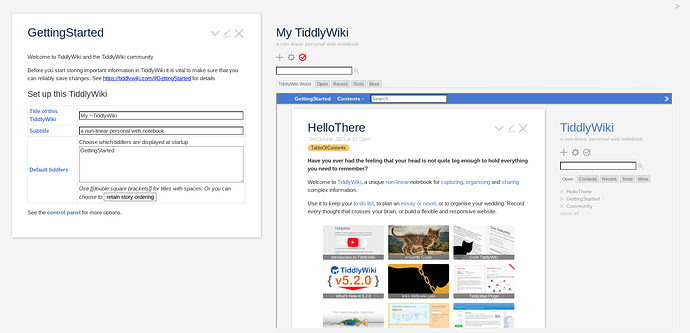I’m not so sure a “standard.html” is a good idea. What’s standard?
I’m thinking empty.html with recipes and related drop-in tiddlers would be good so that folk can define their own standard html. Along with the whole “TiddlyWiki World” of documentation, plug-ins, tricks, tips, showcases, videos, you name it, all available from the sidebar to walk new users through any little thing a new user should learn and can reference.
So a nice external page loaded into the sidebar with a directory of all things TiddlyWiki.
I’ve got no time to put together what I’m thinking right now, but picture a nice simple and pretty page instead of the TiddlyWiki.com page showing in the sidebar.
I think the blank canvas that is empty.html is perfect IF the sidebar has everything in “TiddlyWiki World” to hold a new user’s hand.
So Start Here, Explore the TiddlyWiki user interface, yadda yadda yadda, the full monty.


